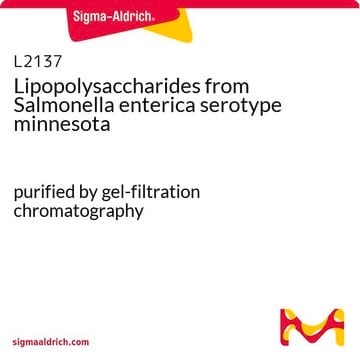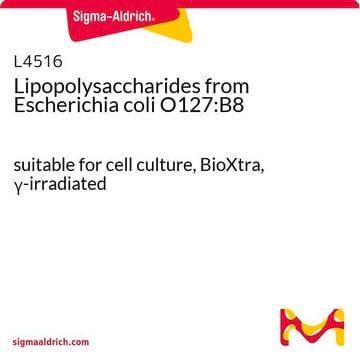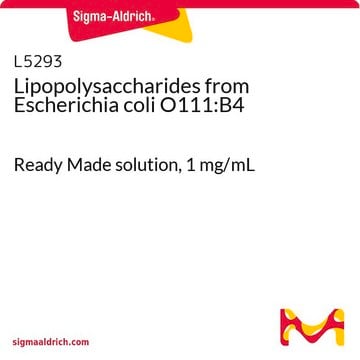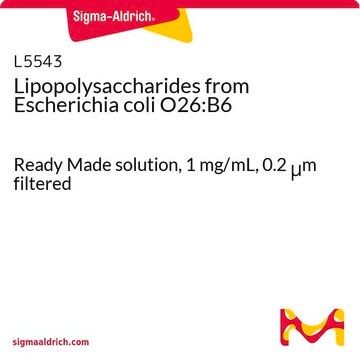L4641
Lipopolysaccharides from Salmonella enterica serotype minnesota
γ-irradiated, BioXtra, suitable for cell culture
Sinónimos:
LPS
About This Item
Productos recomendados
origen biológico
Salmonella enterica (Serotype minnesota)
esterilidad
γ-irradiated
Línea del producto
BioXtra
Formulario
lyophilized powder
purificado por
gel-filtration chromatography
técnicas
cell culture | mammalian: suitable
impurezas
<1% Protein (Lowry)
temp. de almacenamiento
2-8°C
¿Está buscando productos similares? Visita Guía de comparación de productos
Descripción general
Aplicación
Acciones bioquímicas o fisiológicas
Otras notas
Producto relacionado
Código de clase de almacenamiento
13 - Non Combustible Solids
Clase de riesgo para el agua (WGK)
WGK 3
Punto de inflamabilidad (°F)
Not applicable
Punto de inflamabilidad (°C)
Not applicable
Equipo de protección personal
Eyeshields, Gloves, type N95 (US)
Elija entre una de las versiones más recientes:
Certificados de análisis (COA)
¿No ve la versión correcta?
Si necesita una versión concreta, puede buscar un certificado específico por el número de lote.
¿Ya tiene este producto?
Encuentre la documentación para los productos que ha comprado recientemente en la Biblioteca de documentos.
Los clientes también vieron
Nuestro equipo de científicos tiene experiencia en todas las áreas de investigación: Ciencias de la vida, Ciencia de los materiales, Síntesis química, Cromatografía, Analítica y muchas otras.
Póngase en contacto con el Servicio técnico





